Success Stories
On Mobile Device? Click here to view in Plain Mode

Training 8,000 Healthcare Workers in Zimbabwe to Fight HIV/AIDS
The global HIV/AIDS epidemic continues to be one of the most serious health problems facing Zimbabwe, where the prevalence of HIV in people aged 15-49 years is 14.9% and most patients receiving antiretroviral treatment still have to travel long distances to access care.
Read more: HTML »
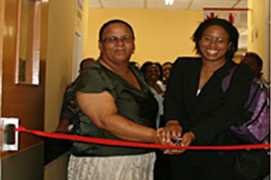
Building to Last: CDC Partner Leaves Proud Legacy in South Africa
Representatives from the regional South African government joined with partners supporting the U.S. President’s Emergency Plan for AIDS Relief (PEPFAR) to celebrate eight years of dedicated public health support to expand quality HIV/AIDS care and treatment services in the region.
Read more: HTML »
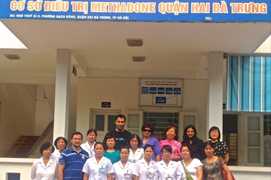
CDC-Vietnam Shares HIV/AIDS Technical Expertise with Central Asia Region
For more than 10 years, CDC-Vietnam through the U.S. President’s Emergency Plan for AIDS Relief (PEPFAR) has been providing scientific and technical expertise to the Government of Vietnam in their fight against HIV/AIDS.
Read more: HTML »

Changing Lives in Kenya’s Kakuma Refugee Camp
Hannah is a tall but frail Kenyan woman living in the Turkana district of northwest Kenya. Although residing in an area that is largely defined by Kakuma Refugee Camp, Hannah is not a refugee. However, her struggle is as daunting and nearly as difficult.
Read more: HTML »

Dramatically Increasing Access to High Quality STI and HIV Services for Key Populations in Thailand
Read about how CDC, through PEPFAR, helped Thailand strengthen its ability to diagnose and treat sexually transmitted diseases.
Read more: HTML »
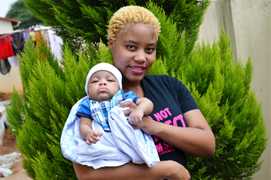
Early Infant Male Circumcision: A Giant Leap toward an HIV-Free Generation in Botswana
When Kopano Matlhape gave birth to a new baby boy on January 3, 2014 she called him Tyrone – a name with Greek origins meaning “sovereign” – to let the world know there was a new king in town. Like any new parent, she has big dreams for her son’s future, and above all, wants to ensure her little king grows up healthy.
Read more: HTML »
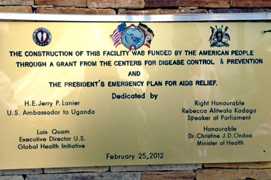
Global Health Initiative Executive Director Opens CDC-Supported Uganda Blood Transfusion Service Headquarters
Lois Quam, Executive Director of President Obama’s Global Health Initiative (GHI),joined the Honorable Ambassador Jerry P. Lanier for the official opening ceremony for the new Uganda Blood Transfusion Service (UBTS) blood bank and laboratory, which was constructed with funds from the American people.
Read more: HTML »

HIV Counselor Reaches the Hard-to-Reach Communities in Nigeria
Hassan is a community health extension worker and team lead of the HIV Testing and Counseling Unit at Tsafe General Hospital. Tsafe is an area located in Zamfara state in northwest Nigeria. It has several remote communities with an estimated population of over 90,000 people who have little or no access to hospital care.
Read more: HTML »
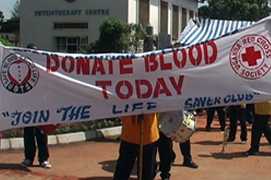
Improving Blood Safety in Uganda
In the early years of the global HIV/AIDS epidemic, a safe blood supply was a critical concern for stopping the transmission of HIV for developed and developing countries alike. Over the years great strides have been made in improving blood safety, but it continues to be an ongoing challenge in developing countries.
Read more: HTML »

Innovative Electronic Medical Record System Expands in Malawi
Keeping track of even one patient undergoing treatment for HIV/AIDS can be complicated. Doing it for over 472,865 patients when you’re a low income country coping with high demand and a sputtering economy magnifies the complexity.
Read more: HTML »
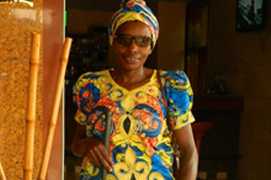
Julie's Story: Improving the Lives of HIV-Positive People with Disabilities in Rwanda
“My name is Julie, and I am a 45 year old blind woman living in Rwanda. I am married to a blind man and practice small farming to sustain myself and my family. For many years I knew my HIV status and it troubled me a lot.
Read more: HTML »

Laboratory Accreditation Program to Strengthen Health Systems
On July 27, 2009, in Kigali, Rwanda, with critical support from CDC's Division of Global HIV/AIDS, 140 host government laboratory personnel, health experts and policymakers from 12 African countries launched the first-ever World Health Organization (WHO) AFRO -accreditation program.
Read more: HTML »
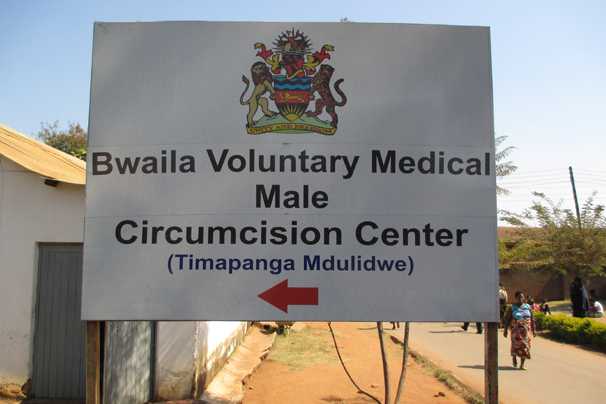
Launch of VMMC Activities in Malawi Brings New Tool for HIV Prevention
Over the past decade, HIV prevalence among adults in Malawi dropped from 16.2% in 1999 to 10.6% in 2010*. Although this success reflects the commitment of the Malawi government and people to ending the HIV epidemic, HIV remains a serious challenge.
Read more: HTML »
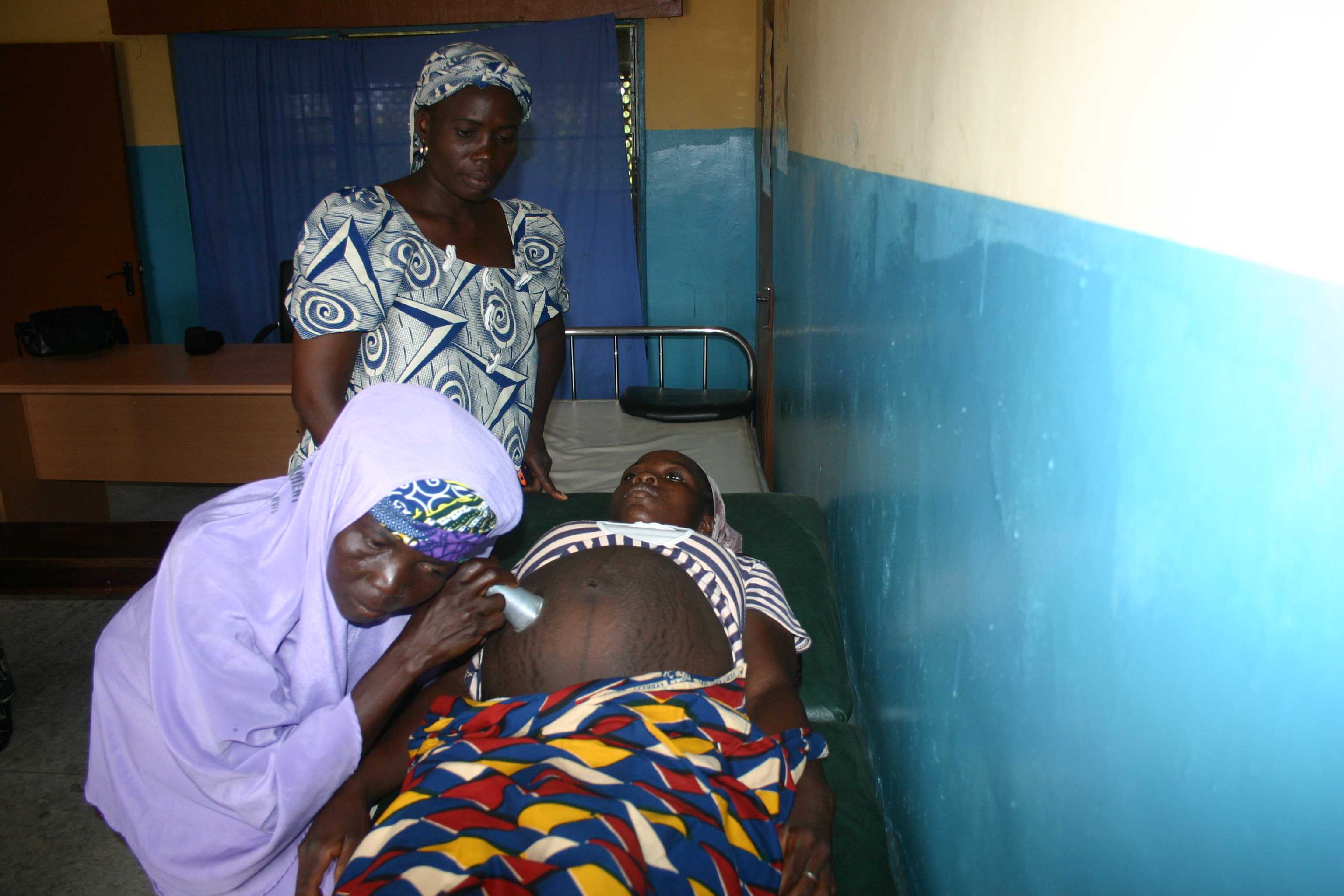
Meet Fatima, Hauwa, and Iyabo: Traditional Birth Attendants and HIV Educators in Nigeria
Few women in Niger state, Northern Nigeria, have access to obstetricians or other trained health care workers. Many live in rugged localities and villages far from health facilities. For rural families with limited resources, traditional birth attendants (TBAs) have played a vital role in helping women deliver their babies.
Read more: HTML »
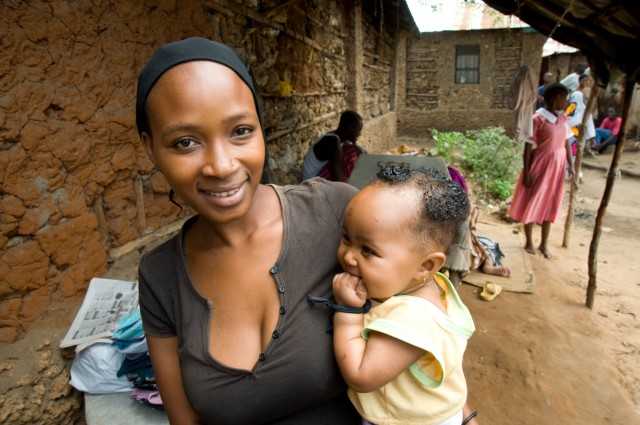
Option B+: A Bold New Approach Saves Mothers and Babies
The inspiring vision of an AIDS-free generation—as powerfully articulated by President Obama in his 2013 State of the Union address—took a leap forward in the developing nation of Malawi recently, where CDC supported the implementation of an innovative new approach to eliminate mother-to-child HIV transmission.
Read more: HTML »

Public-Private Partnership Strengthens Global Laboratory Systems
Deficiencies in the health care systems in most countries supported by the U.S. President’s Emergency Plan for AIDS Relief (PEPFAR)External Web Site Icon are enormous, and no single entity – neither governmental and non-governmental organizations nor industry – can meet these challenges alone.
Read more: HTML »
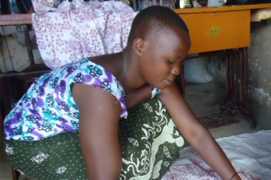
Rukia, an AIDS Orphan, Becomes a Business Owner in Tanzani
Rukia, an inspired 20-year old woman, overcame a childhood full of obstacles and fulfilled a lifelong dream of owning her own business. She was just in primary school when her mother passed away from AIDS-related illness. Left alone with five other siblings and no income, her family immediately sunk into poverty.
Read more: HTML »

Sarafina’s Story: An Exceptional HIV Counseling and Testing Provider in Namibia
In 1992, Ms. Sarafina Kafungu received news that would change her life: she was HIV positive. However, it took her a while to accept that fact. “I was in denial for eight years. I told people lies, told them I had skin problems, not HIV,” she remembers.
Read more: HTML »
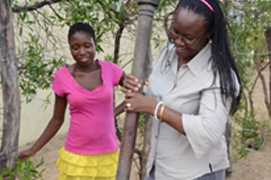
Saving Lives and Improving HIV Care in Namibia
Ms. Naemi Shoopala, a nurse with passion for mentoring and capacity building, is on a mission to save lives and improve the quality of HIV/AIDS services in Namibia. She has nursed HIV-positive mothers and children back to health and seen the seriously ill regain hope thanks to CDC through the U.S. President’s Emergency Plan for AIDS ReliefExternal Web Site Icon (PEPFAR).
Read more: HTML »
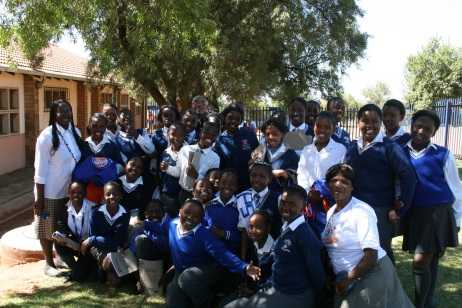
Soul Buddyz After-School Program Inspires Children to Live Healthier Lives
All children have the right to safe activities after school, especially when they offer support for some of life’s hardest issues, including HIV/AIDS prevention and gender-based violence. Soul Buddyz, an innovative non-government organization in South Africa, is working with schools, teachers, and children to provide a rich after-school program.
Read more: HTML »
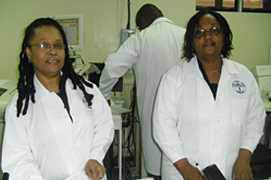
Strengthening Laboratory Services and Systems in the Caribbean Region
The Caribbean Laboratory Working Group collaborated with the African Field Epidemiology Network (AFENET) to implement sustainable, evidence-informed quality improvement activities throughout the region.
Read more: HTML »
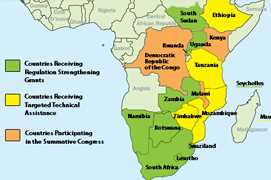
Strengthening the African Health Workforce
On July 27, 2009, in Kigali, Rwanda, with critical support from CDC's Division of Global HIV/AIDS, 140 host government laboratory personnel, health experts and policymakers from 12 African countries launched the first-ever World Health Organization (WHO) AFRO -accreditation program.
Read more: HTML »
- Page last reviewed: August 31, 2016
- Page last updated: August 31, 2016
- Content source:


 ShareCompartir
ShareCompartir